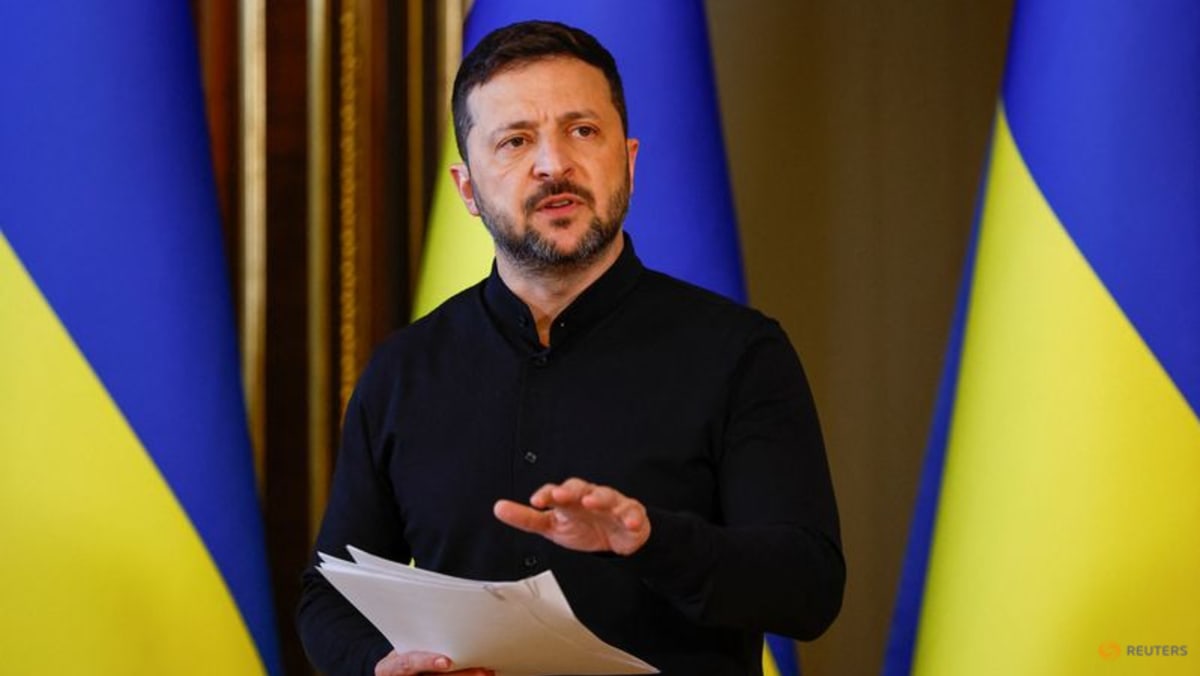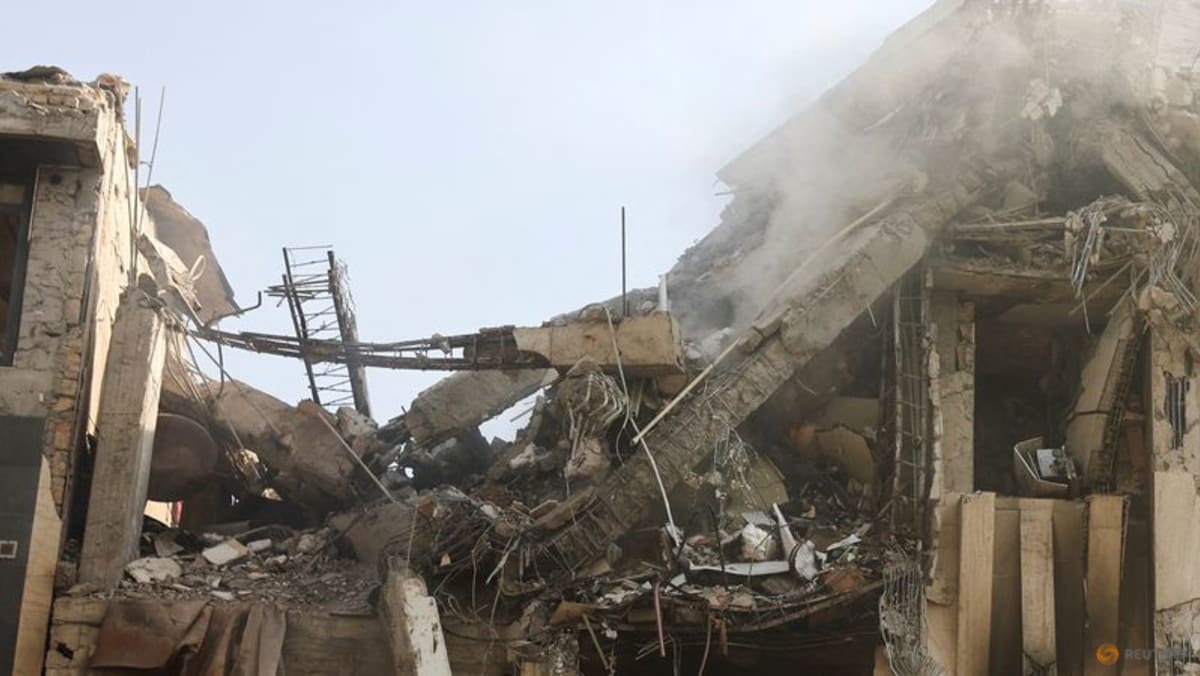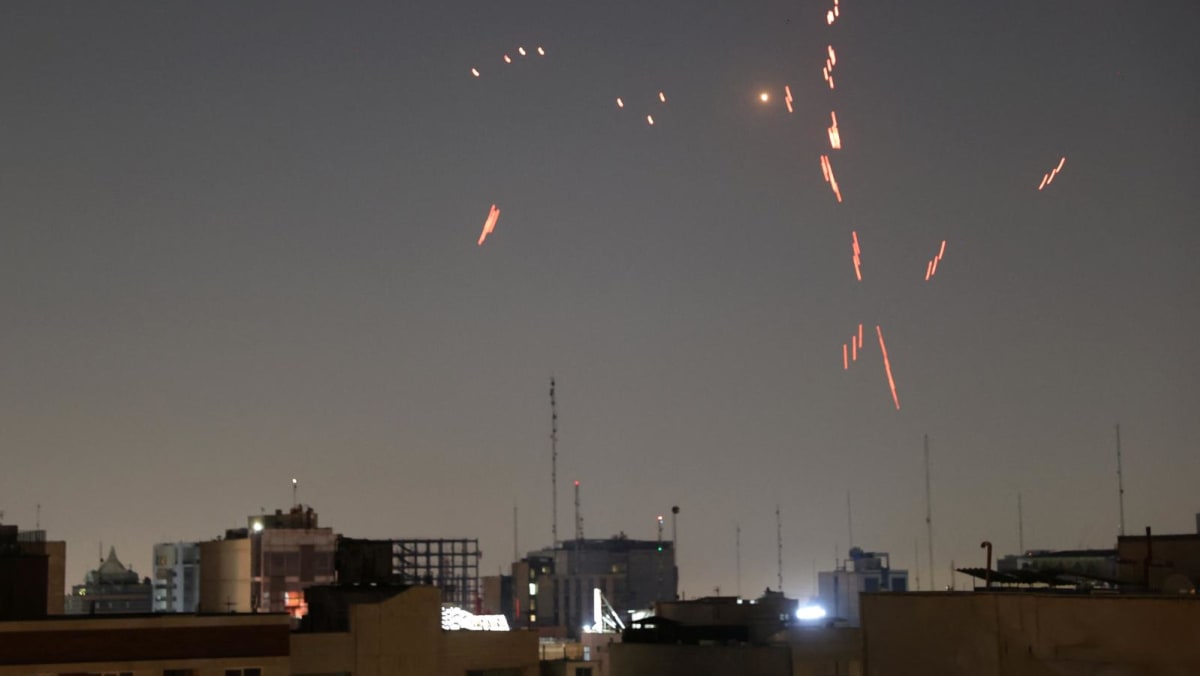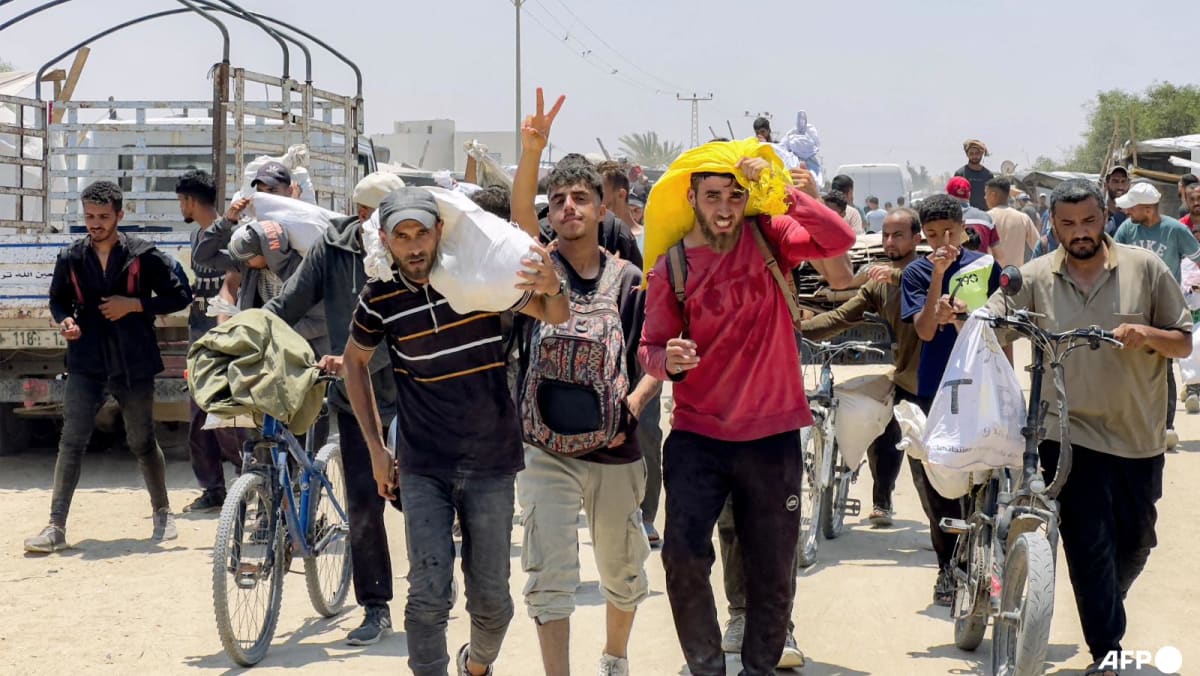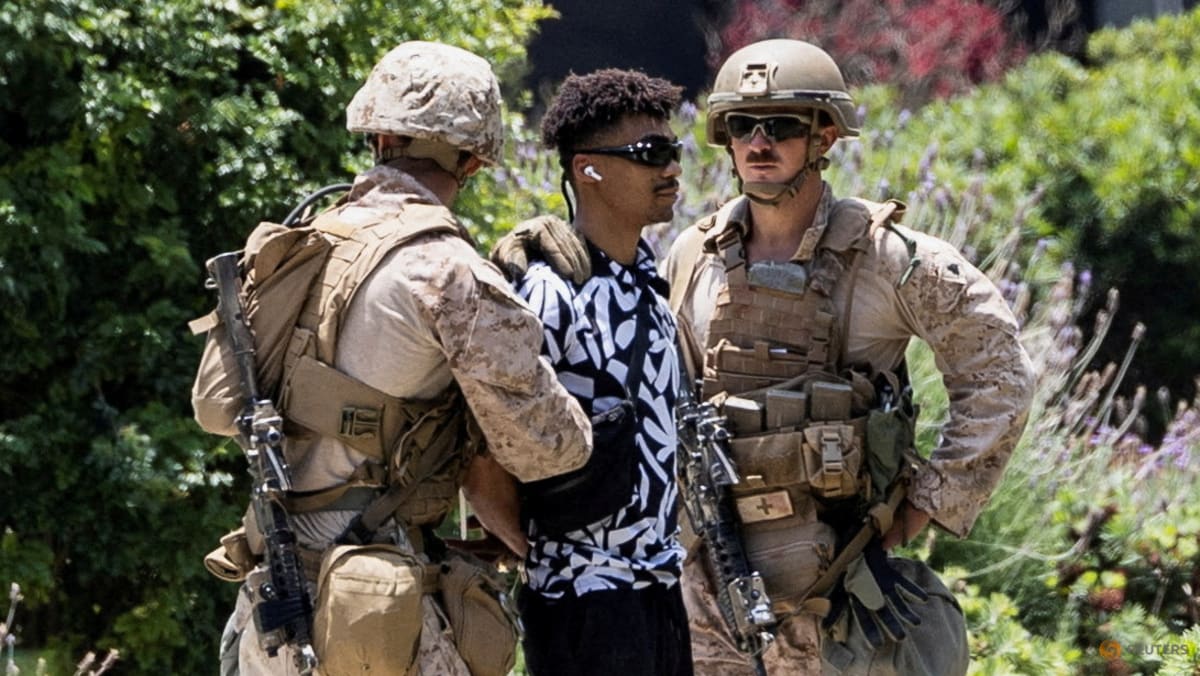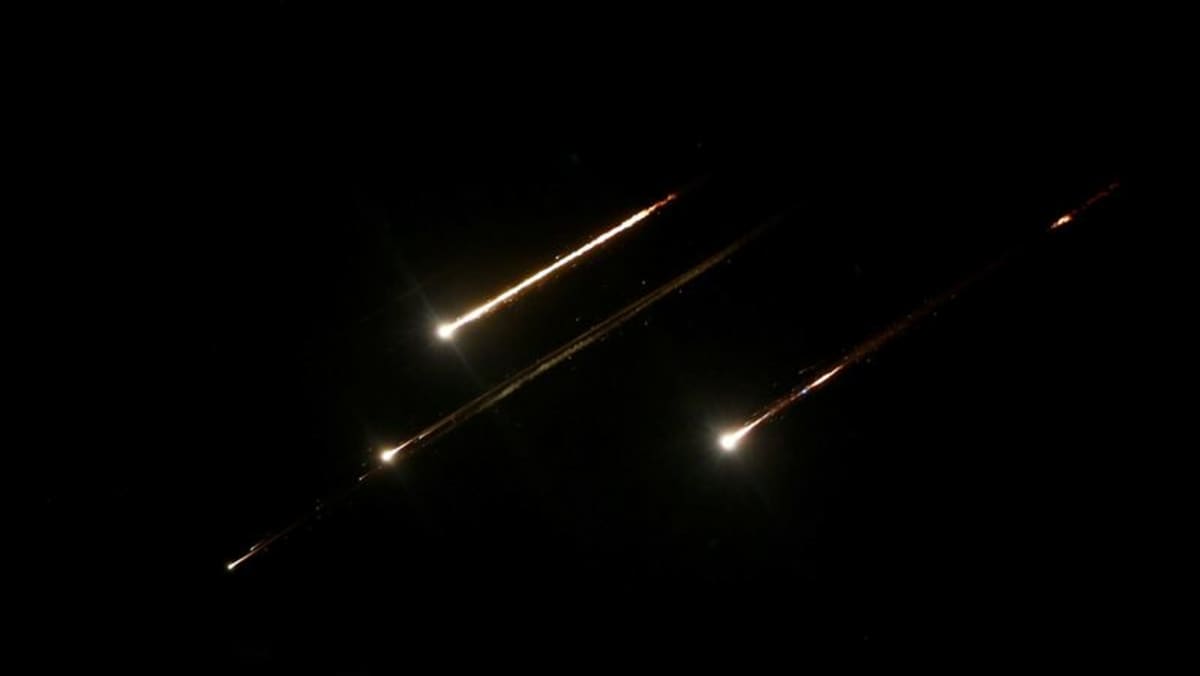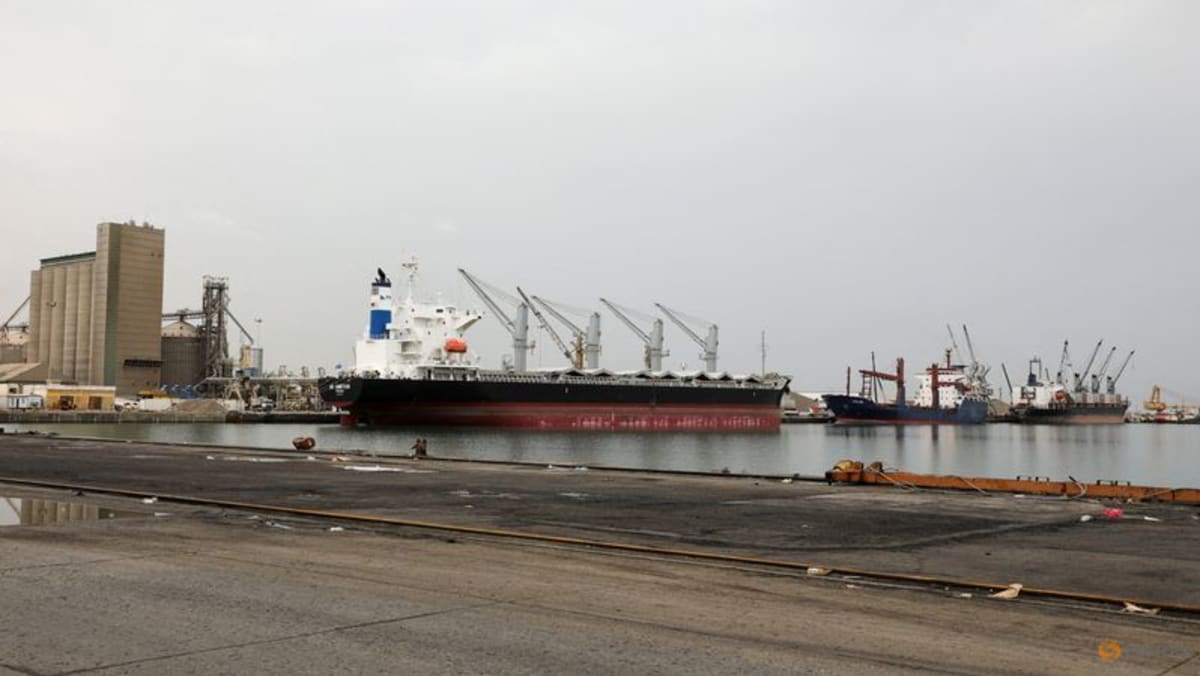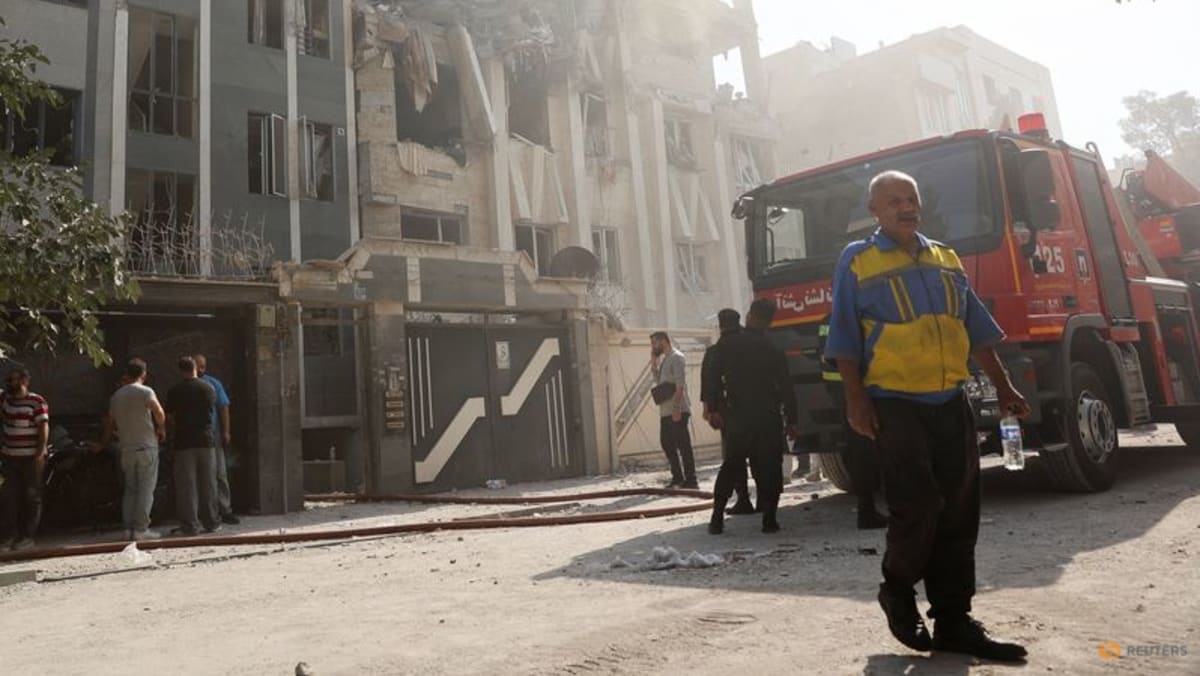IRANIAN NUCLEAR ENRICHMENT PLANT REPORTEDLY DAMAGED
Iran’s main nuclear enrichment facility at Natanz suffered significant damage, Israeli military spokesman Brigadier General Effie Defrin said.
Briefing journalists online, Defrin said 200 Israeli fighter jets took part in the strikes, hitting more than 100 targets, with others to work through, and that the operation might be lengthy.
Benjamin Netanyahu, Israel’s longest-serving prime minister, invoked the horrors of the Nazi Holocaust to justify his decision to attack Iran, framing the strikes as a decisive step to protect Israel from a future existential threat.
His office said he would speak to Trump later in the day.
Just before 6am Washington time, Trump posted on his Truth Social platform.
“I gave Iran chance after chance to make a deal,” he said.
“There has already been great death and destruction, but there is still time to make this slaughter, with the next already planned attacks being even more brutal, come to an end. Iran must make a deal, before there is nothing left …”
At one time, Israel might have expected a wave of retaliation from Iranian-backed militias around the region.
Supreme Leader Ayatollah Ali Khamenei said in a statement that Israel had “unleashed its wicked and bloody” hand and would suffer “a bitter fate”.
But since war erupted in Gaza in October 2023, Israel has severely weakened Iran’s allies, notably by assassinating the top leaders of the Palestinian militant group Hamas and Lebanon’s Hezbollah and attacking the Houthis who control large parts of Yemen.
Israel said a missile fired from Yemen by Houthi militants landed in Hebron, injuring three Palestinian children.
Airlines quit the airspace over Israel, Iran, Iraq and Jordan after the Israeli strikes, Flightradar24 data showed, with carriers diverting or cancelling flights.
Israeli airlines El Al, Israir and Arkia said they were moving their planes out of Israel and Tel Aviv’s Ben Gurion Airport was shut.
Dubai-based Emirates cancelled flights to and from Iraq, Jordan, Lebanon and Iran as Iran closed its airspace.
However, merchant shipping continued to pass through the Strait of Hormuz at the mouth of the Gulf, although some shipowners were looking to avoid the region.
Israel remained on alert, shutting its embassies around the world and urging citizens via embassy websites to stay vigilant and avoid displaying Jewish or Israeli symbols in public.
Israeli military Chief of Staff Eyal Zamir said tens of thousands of soldiers had been called up and “prepared across all borders”.
Jordanian Foreign Minister Ayman Safadi joined global calls for de-escalation and accused Israel of violating international law.
“At an extremely critical time when the US was negotiating a nuclear deal with Iran that would save the whole region and the world, a new vicious escalation,” he said on X.
Iran’s armed forces spokesperson accused Washington of providing support for the operation. But Secretary of State Marco Rubio said the US had not been involved and Israel had acted unilaterally in self-defence.
US officials have repeatedly said any new deal – to replace a 2015 accord between Tehran and six world powers from which Trump withdrew – must include a commitment to scrap uranium enrichment, a prerequisite for developing nuclear bombs.
Israeli National Security Adviser Tzachi Hanegbi said on Friday that Iran’s nuclear programme cannot be fully destroyed by force alone, and that the goal was to push Tehran toward a long-term diplomatic agreement led by the United States.

